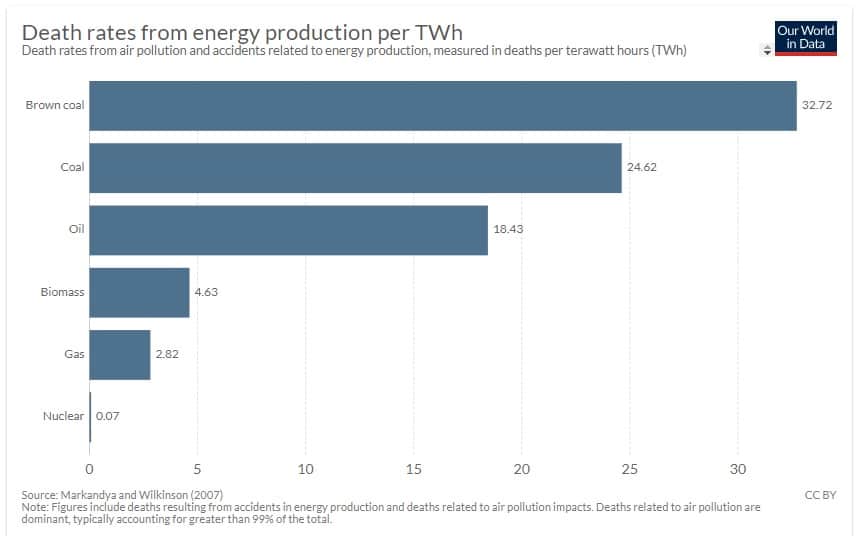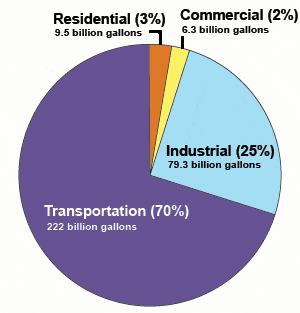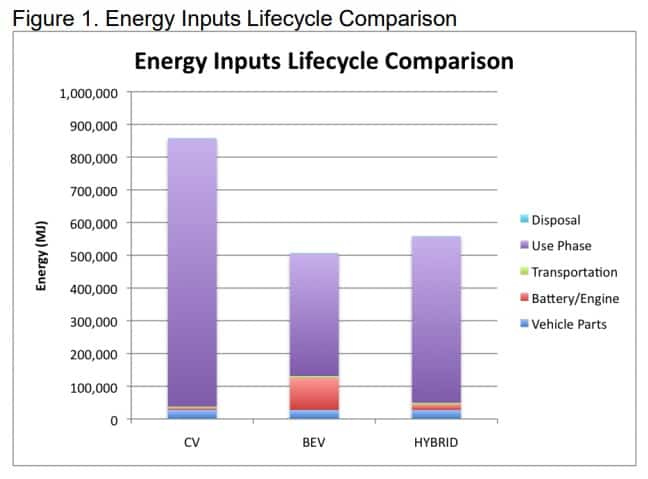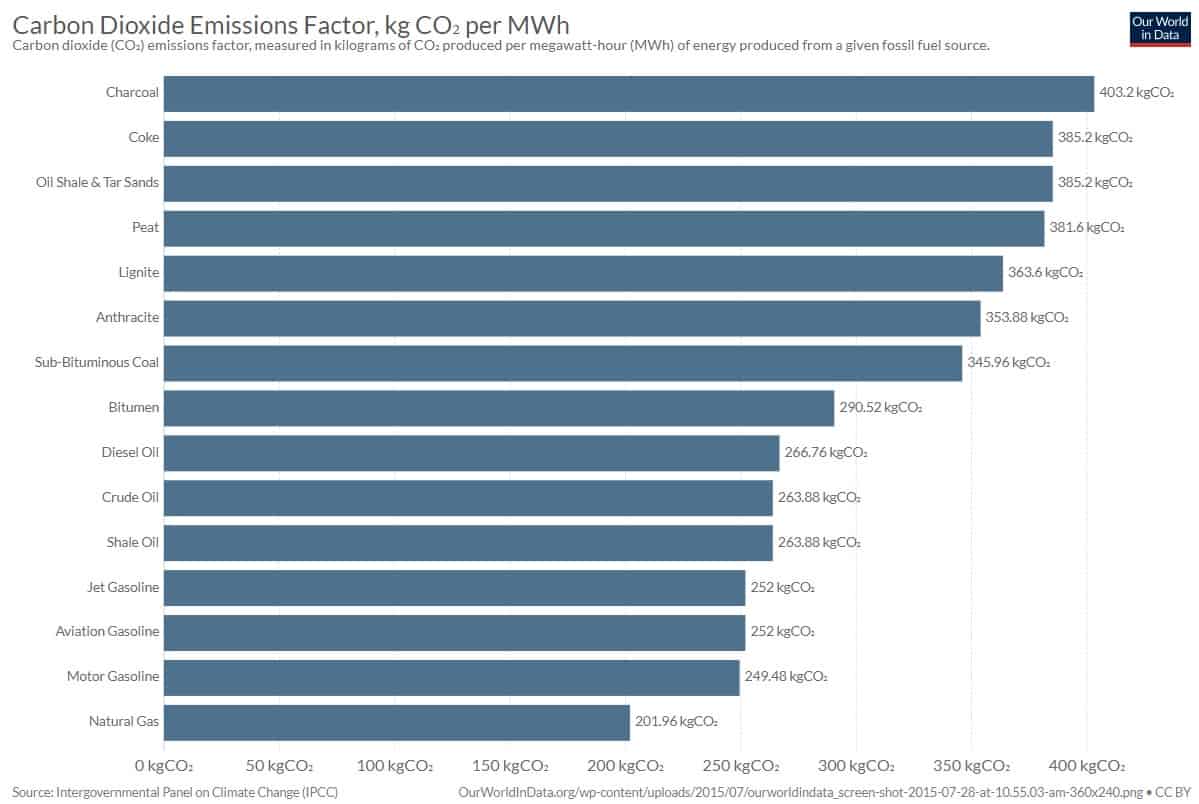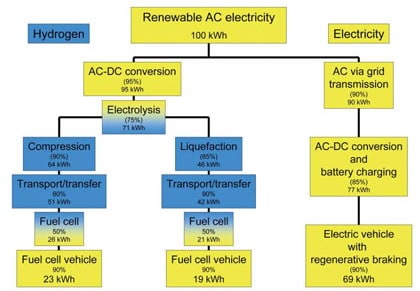Charting the transition to a Renewable energy based economy
Disclaimer:
I have no allegiance to any political party or leader, I vote strategically based on which party is closer to addressing major issues, such as oil dependence and environment.
The coming transition to Electric cars
There is a debate raging in my home province Alberta about the viability of oil for the future of the economy. I have many family members that are deeply conservative and have their livelihood intricately connected with the oil industry. The recent years have brought a lot of pain and subsequent anger, much of it misguided in my personal opinion. There is a great shift occurring in the world towards electrification of transport that I see as being unavoidable.
Doubling down on oil at a time when majority of auto manufacturers have begun to make the transition to fully electric vehicles has got to be one of the worst economic plans ever. VW, Porsche, Audi, BMW, Mercedes, Ford, GM, Volvo, Fiat Chrysler, Hyundai, Jaguar just to name a few…
If I had to guess, I think oil has another 10-30 years of life in it before it’s mostly taken over by electrification of cars. Coal likewise probably has a similar time horizon. Natural gas is probably closer to 50+ years.
There is now more than $300 billion pledged to develop electric cars by the major auto manufacturers. (source)
Daimler Mercedes has stopped development on the gasoline engine and focsed all it’s effort on Electric cars. Daimler says “das Auto” will change more in the next 10 years than in the previous 100 years. (source) Mercedes also publicly credits Elon Musk with supporting the advancement.
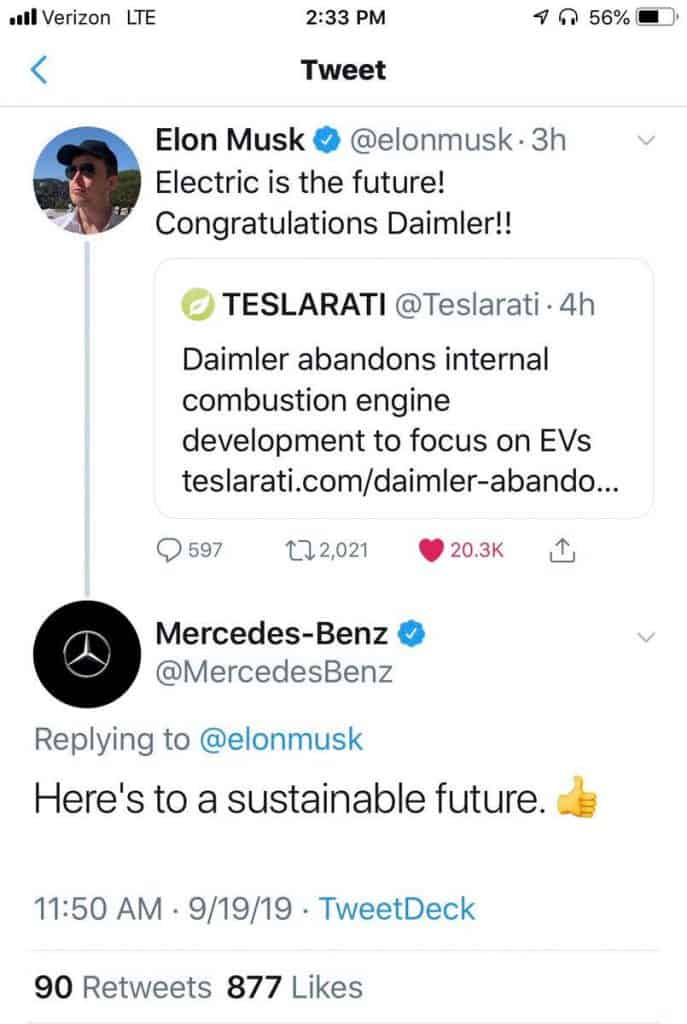
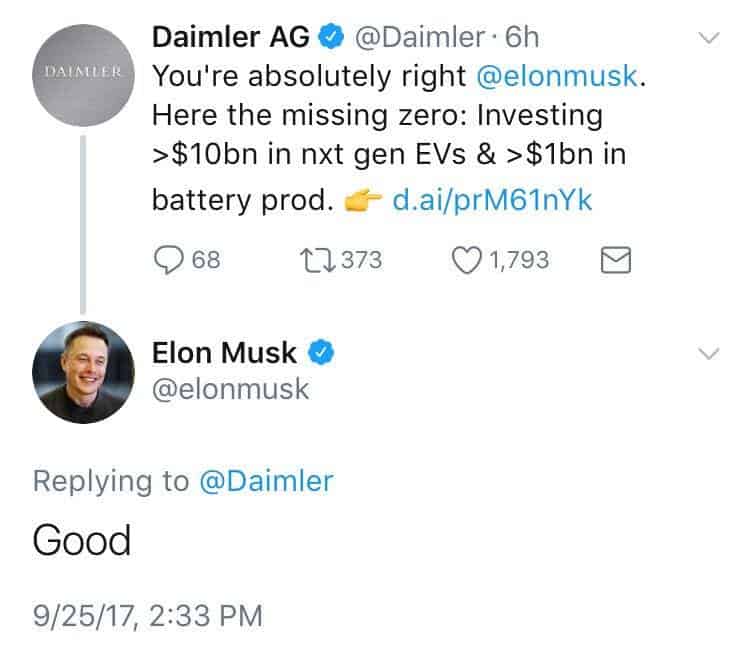
Oil will still be used 50 years from now, but likely at a 60-80% reduced rate. Make your economic bets accordingly.
You can deny climate change, but you cannot deny human death by pollution
Toxic particulate matter from combustion processes causes damage to the environment in direct terms and human death. Over 4.2 million people die from outdoor air pollution every year.
Spending a lot of time in Germany I can tell you Germans on the whole as most Europeans are willing to spend more money on their electricity if it means not causing as much environmental damage. Ask yourself given the cost increases, why the German people are still forging ahead at an even more aggressive rate?
The answer is they are a more socially and ethically responsible people and will throw money and engineers at something until they get it. Where there is a will there is a way. Smart grid technology, more grid inter-ties, plus grid storage can fix many problems stated in the article. Denmark where I’m currently at just north of Germany is already at greater than 60% from renewables.
China is now pursuing renewables at a greater rate than almost any other country not necessarily because all of the sudden they care about global warming, but because they are choking to death on their own smog! It’s not nice living in Beijing or Shanghai and not being able to go outside, staying couped up in your air-filtered apartment because you can barely breathe the outside air without a mask. They are doing it more so out of a necessity rather than being more ethically responsible like the Europeans.
Meanwhile many North Americans lacking the moral & ethical wherewithal of their European brethren, continue to pollute irresponsibly because they don’t have to deal with the immediate effects of density and have smog choking their lungs the second they step outside their suburban homes.
Burning fossil fuels causes more human death than alternative sources of energy by 20x-200x. (source)
How much global crude oil production is used in transportation daily?
About 50% of all crude oil produced is used by automobiles. Cars and Trucks.
About 10% is used by airplanes for comparison.
About 2.5% is used to make plastics.
As of 2019 the world consumes about 100 million barrels of crude oil per day (mbpd). Of that 50% or 50 million barrels per day of that could easily be replaced by electric cars in the coming decades.
The other 20% of crude oil used in transportation for things such as airplanes, ships and trains will also ultimately be electrified. This will likely take comparatively longer though by a few decades compared to the electrification of automobiles.
But, building cars and especially batteries is so energy intensive.
Tesla Gigafactory in Nevada currently the world’s largest battery manufacturing plant will ultimately be net-zero.
Tom Lombardo, a professor of engineering and technology at Rock Valley College in Rockford, Ill. :
“The numbers don’t lie. The site could realistically produce more than 2900 MWh of renewable electricity each day … 20% more than it needs. These are conservative estimates on production and worst-case estimates on consumption, and it’s clear that there’s enough renewable energy to run the plant with some to spare.” (source)
But “mining” lithium for batteries is so bad for the environment.
All resource extraction is environmentally destructive, however which is cumulatively worse, including full material life cycle analysis? Looks like a comparative study is needed.
CV – Conventional Vehicle; BEV – Battery Electric Vehicle
What’s lost in the discussion of lithium is that once it is put into a car battery, it lasts for as long as the battery and can then be re-used. The battery is a closed unit and none of the metals are lost. Furthermore, they are designed by the likes of Tesla to be recycled at the end of life with all the metals re-used.
As opposed to the oil from oil sands, which needs to be extracted and then refined using enormous amounts of water and energy, releasing CO2, going into cars designed to continuously burn & consume oil over their entire life cycle.
https://cleantechnica.com/2016/05/12/lithium-mining-vs-oil-sands-meme-thorough-response/
But, electric cars get their energy from coal
It is true that if you plug into the grid in places like North America or even Germany significant portions of electricity are generated by coal and natural gas. So does switching from one fossil fuel to another have a meaningful impact? This is a valid question.
Just as a baseline it is important to note the following thermal or power conversion efficiencies of the vehicles:
- Gas vehicle: 20%
- Diesel vehicle: 40%
- Electric car: 90%+
Important things to consider is that large power plants, due to economies of scale can operate at a much higher efficiency than generating power locally in say a small engine or generator. Losses on the grid are small typically less than 3% for the transmission and distribution of electricity. To refine oil into gas, and then distribute is comparatively much more energy intensive. But how much you ask? Luckily we have well-to-wheel efficiency calculations to take all the various variables into account.
“The national average is 4,815 pounds of CO2-equivalent emissions for a typical EV per year as compared to the average gasoline-powered car which produces 11,435 pounds of CO2-equivalent emissions annually.” (source)
End-to-End Solar power
Not only can manufacturing be predominantly powered by solar, so can charging your vehicle if a person installs solar on the roof of their home.
But Wind and Solar are not dependable
Wind & Solar can be dependable when paired with grid-scale battery banks. Tesla did this in Australia and the project is paying off for itself quickly. It also starts to eliminate the need for natural gas peaker plants. (source)
Residential Solar becomes dependable when paired with Tesla’s powerwall. I think this is likely preferable as it is more decentralized and empowers consumers to be free of the grid.

Tesla Solar Roof with Power-wall charging Electric Car
Speed of the transition
The average gasoline car consumes 12 barrels of oil per year. (source)
That means about 83,333 gasoline cars use 1 million barrels per year.
At the end of 2018 there were about 5 million electric cars on the road (source), displacing 60 million barrels of oil per year.
In order to begin meaningfully displacing oil, 1 million barrels a day I think is a good target. Which means 365 million barrels of oil per year.
This means we would need 30.4 million electric cars on the road to displace about 1 million barrels a day.
Electric car growth is on a nearly exponential curve, so it shouldn’t take to long to reach that metric.
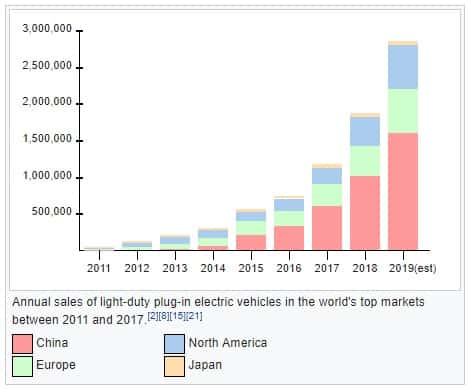
In the year 2018, global electric cars sales stood at 2.2% of all vehicles. (source)
Out of 86 million cars sold, 2.1 million were electric. (source)
It’s possible that 2017 may have been the peak for fossil fuel vehicle sales in Europe, China and USA and that they will be in perpetual decline from here on out. (source)
As a total absolute number there are an estimated 1.4 billion vehicles globally on roads. (source)
If the next 8 years were to match the last 8 years in terms of growth
Between 2010 and 2018, EV’s grew at a rate of production of approximately 60% per year. If we carry that forward linearly, and this is likely very overly optimistic growth would look like the following:
- 2018 – 2.1 million
- 2019 – 3.36 million
- 2020 – 5.38 million
- 2021 – 8.60 million
- 2022 – 13.76 million
- 2023 – 22.02 million
- 2024 – 35.2 million
- 2025 – 56.37 million
- 2026 – 90.19 million
If cars stay in the 60-90 million produced per year range, then EV’s stand to take serious market share away from fossil vehicles in 5-10 years.
The average ICE vehicle in the USA has a life expectancy of about 16 years. (source)
If 86 million cars are produced annualy, and there are about 1.4 billion cars on the road, it would roughly take about 16 years to replace all ICE vehicles post 2026. So it could be that majority of vehicles 75%+ on roads may be electric by 2038.
Effects on global oil consumption
McKinsey estimates that oil consumption will drop to about 82 mbd from a likely high of about 105-110mbd (reached around 2025) by 2035. (source) My personal opinion is that electric car adoption will be much faster than most people realize and I anticpate consumption to drop to about 60mbd by 2040. This would be equivalent to 1986 levels of consumption.
EV vs. oil – from an investment perspective
“For a given capital outlay on oil and renewables, how much useful energy at the wheel do we get? Our analysis indicates that for the same capital outlay today, new wind and solar-energy projects in tandem with battery electric vehicles will produce six to seven times more useful energy at the wheels than will oil at $60 per barrel for gasoline powered light-duty vehicles, and three to four times more than will oil at $60 per barrel for light-duty vehicles running on diesel,”
“As a result, the report says, the long-term break-even oil price for gasoline to remain competitive as a source of mobility is $9 – $10 per barrel, and for diesel $17 – $19 a barrel.”
“To meet 2018 levels of energy demand, the oil industry would have to spend $25 trillion a year for the next 25 years, while to produce the equivalent level of energy from renewables would cost on $4.6 trillion – $5.2 trillion, Lewis says.”
“For the oil majors, the challenge is on a scale that they have never faced before, and business-as-usual is simply not an option,” the bank says, with any projects with break-even costs of $20 a barrel or higher facing the possibility that up to 40% of their output at below the cost of production.” (source)
TaaS (Transportation as a Service) compounding factor
I highly recommend watching the following video. Adoption of electric cars may occur faster than most people anticipate due to self-driving technology chiefly pioneered by Tesla.
Consider the following. “A self-driving EV taxi can replace 7–15 personally owned vehicles, depending on how many rides are shared, so Tesla’s 2023 production could theoretically be the equivalent of replacing 21–45 million vehicles.” (source) – That is near half of global car sales!
But, Renewables get subsidies…if only big oil got that!
From a purely fiscal perspective ignoring externalities, the recent subsidies for fossil fuels globally is around $300-$600 billion annually. (source) Renewables comparatively get for less than that at $100 billion/year in those same years.
If you factor the environmental, social and human costs, deaths due to cancer caused by pollution, etc. Fossil fuels are “subsidized” up to $5 trillion annually. (source)
But oil in countries like Canada has way more environmental regulation than the bloody middle east
Canada might be environmentally regulated, but that does not mean the damage of extraction, and refinement of oil sands is less than light sweet crude in the middle east for example. Oil Shale & Tar Sands are 31% worse in terms of carbon emissions.
Travel to exotic locations by airplane, is so much worse than cars
I often see this argument made and it is wrong. In various media reports they compare an entire Jumbo jet emissions against a loan car which is a ridiculous comparison.
Assuming a full plane, a trip from Heathrow to Edinburgh (530km) works out to:
- By airplane 79kg CO2 per passenger
- By car 98kg CO2 for a single passenger
https://www.sciencefocus.com/future-technology/how-many-cars-equal-the-co2-emissions-of-one-plane/
If I recycle & compost & drive a hybrid, I’m saving the environment, right?
Not even close. Not even if every person on the planet did it. Carbon emissions are greatest from electricity generation, 2x more than oil used for transportation. Utility scale electrical generation needs to be addressed if meaningful change on carbon emissions is to be made. Installing solar on the roof of your home and using that to power your home and charge your electric car are the two things that would make the biggest difference on the micro-personal level.
Hydrogen is the future
Hydrogen is a terrible energy source for vehicles, it’s 25% efficiency vs 90% for electric.
Gas engines average about 20% efficiency, Diesel about 40% for comparison sake. So Diesel in those terms is better than Hydrogen.
Other points of interest
- Animated USA Plugin-Sales Jan 2012 to present: https://public.flourish.studio/visualisation/374245/
- Fossil Vehicle Sales Are Officially Now Decreasing In China, Europe, & USA: https://cleantechnica.com/2019/02/16/fossil-vehicle-sales-are-officially-now-decreasing-in-china-europe-us/
- Germany plans to phase out coal by 2038: http://ieefa.org/german-coal-phase-out-plan-will-shutter-first-12-7gw-of-capacity-by-2022/
- Tesla’s Impact Report for 2018: https://www.teslarati.com/tesla-impact-report-2018-results/
- Diversify or die: Why the next Alberta premier must look beyond oil: https://youtu.be/3nZcMsI6oVM
- Tesla Model 3 vs. BMW 3 Series in Germany — ~3× Better Model 3 Could Save Owner €10,000 in 5 Years: https://cleantechnica.com/2019/04/13/tesla-model-3-vs-bmw-3-series-in-germany-3x-better-model-3-could-save-owner-e10000-in-4-years/
- Bloomber EV Outlook report 2019: https://about.bnef.com/electric-vehicle-outlook/
German Study claiming Diesel cars are cleaner than EV’s debunked:

